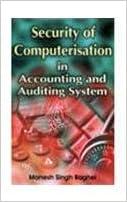Answered step by step
Verified Expert Solution
Question
1 Approved Answer
. . 1. For each class of provision, an enterprise should disclose: The carrying amount at the beginning and end of the period; Additional provisions

. . 1. For each class of provision, an enterprise should disclose: The carrying amount at the beginning and end of the period; Additional provisions made in the period, including increases to existing provisions; Amounts used (i.e. incurred and charged against the provision) during the period; and Unused amounts reversed during the period. 2. An enterprise should disclose the following for each class of provision: A brief description of the nature of the obligation and the expected timing of any resulting outflows of economic benefits; . 014 . . . An indication of the uncertainties about those outflows. Where necessary to provide adequate information, an enterprise should disclose the major assumptions made concerning future events, and The amount of any expected reimbursement, stating the amount of any asset that has been recognised for that expected reimbursement. 3. Unless the possibility of any outflow in settlement is remote, an enterprise should disclose for each class of contingent liability at the balance sheet date a brief description of the nature of the contingent liability and, where practicable: An estimate of its financial effect, An indication of the uncertainties relating to any outflow, and The possibility of any reimbursement. 4. Where any information required for contingent liability is not disclosed because it is not practicable to do so, the fact should be stated properly. Illustration 35 EXOX Ltd. is in the process of finalizing its accounts for the year ended 31st March, 2014. The company seeks your advice on the following: (1) The Company's sales tax assessment for assessment year 2011-12 has been completed on 14th February, 2014 with a demand of 2.76 crore. The company paid the entire due under protest without prejudice to its right of appeal. The Company files its appeal before the appellate authority wherein the grounds of appeal cover tax on additions made in the assessment order for a sum of 2.10 crore. (ii) The Company has entered into a wage agreement in May, 2014 whereby the labour union has accepted a revision in wage from June, 2013. The agreement provided that the hike till May, 2014 will not be paid to the employees but will be settled to them at the time of retirement. The company agrees to deposit the arrears in Government Ronds hy Sentember 2014
Step by Step Solution
There are 3 Steps involved in it
Step: 1

Get Instant Access to Expert-Tailored Solutions
See step-by-step solutions with expert insights and AI powered tools for academic success
Step: 2

Step: 3

Ace Your Homework with AI
Get the answers you need in no time with our AI-driven, step-by-step assistance
Get Started


